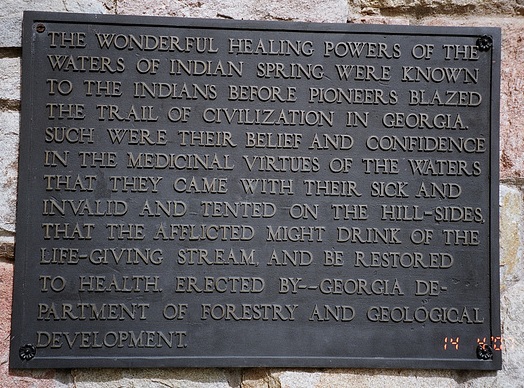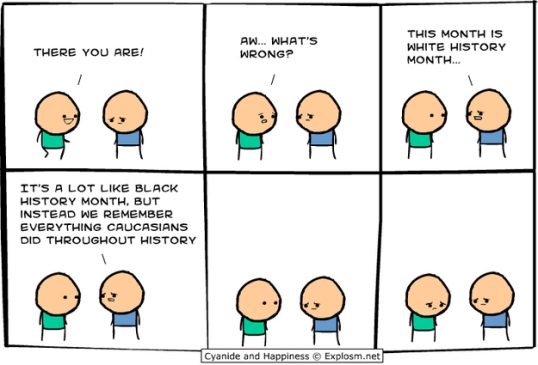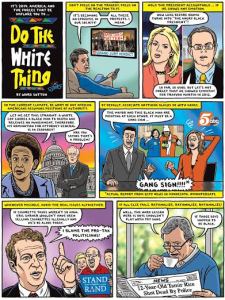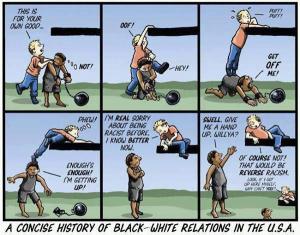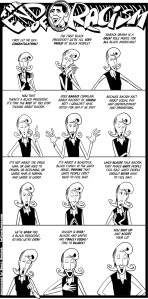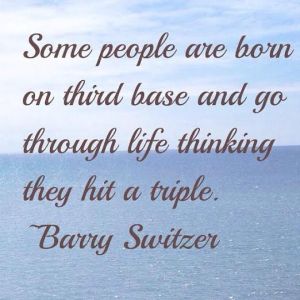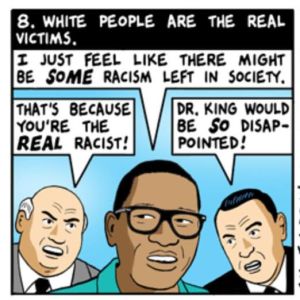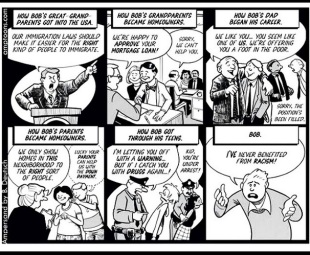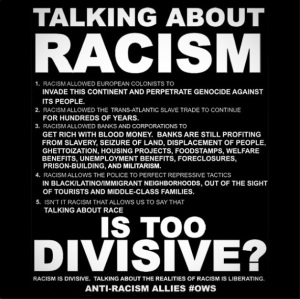Racial tensions have been high once again across the United States ever since the announcement that the infamous former Officer Darren Wilson would not be indicted in the shooting death of Michael Brown. Protests on the ground & all over social media continue. Endless comments on various news outlets & social networks have been showing much of America’s true colors regarding their sentiments about race, aside from their personal takes on the Grand Jury’s decision not to charge Wilson with a crime.
This is a common theme I’ve noticed for many years now. Almost every news article you can find on any news site about a person of African descent, whether it be good or bad, has a plethora of disparaging remarks left by readers regarding their race. You will rarely find the same occurrence of similar style comments about whites. Trolls are everywhere, and some will say that we shouldn’t believe that these comments reflect the mindsets of most of white America; But could they?
In response to many of the common questions & negative comments made towards people of African descent, I thought I would list a few of the more popular ones I’ve encountered & answer or respond to them:
Q: Why are you people acting like children, rioting & looting, destroying your own neighborhoods? It’s not going to change anything & neither will the boycotts! Why are you protesting over a thug anyway?! He deserved what he got!
A: First off, only a very small percentage of protestors out of thousands all over the country have been damaging/stealing property (I prefer to call them opportunists, as they were not really there to fight injustice, but to take advantage of the situation for selfish reasons) & there has been speculation that many of the fires that were started had been done so by infiltrators in attempts to demonize black people in the media. Video footage of what appears to be police officers starting a fire has also surfaced. Almost every fire during the protests occurred on that same street, where there was a heavy police presence, which would have made it very difficult or highly unlikely that protestors were able to gain access to these buildings to start the fires themselves. A church that was burned was one that the Brown family attended, which was 3 miles away from the rest of the protests & no other buildings in the area were targeted & in the case of DeAndre Joshua, a 20 year old man found shot & burned in a car during the Ferguson protests, have both been speculated to be the work of the KKK. Joshua was a witness that testified before the Grand Jury, and was also a friend of Michael Brown’s.
Secondly, I & many others, including a majority of the protestors do not condone such behavior, so it makes no sense to apply the actions of a very small few to the overwhelming majority of peaceful protestors. It also makes no sense to only focus on those few bad ones, as it takes away from the message that the peaceful ones are trying to convey. It’s also quite inhumane to be more concerned with replaceable & repairable property than with the loss of an irreplaceable life, or the lives in this country who face racism on a regular basis. The protests are not only about Michael Brown’s incident either, but being denied a trial that many felt he deserved. They are also the result of built up frustration from a large number of other similar, recent & historical incidents & the obviously biased & broken judicial system. Many of the protests have been in honor of other people who died as a result of police brutality as well.
Thirdly, reports are stating that the boycotts & protests have made a great impact on Black Friday this year, with many stores not reaching their sales goals. The Montgomery Bus Boycotts went on for nearly a year, but in the end, laws were changed & it put America one step closer to racial equality. So some may already be convinced that doing boycotts will not help with the cause, but history proves otherwise.
Q: Why can’t you be more like Martin Luther King, Jr, who was peaceful & spoke of non-violence? He would be turning in his grave right now…
A: MLK was a great man who did many great things & America has not seen another black leader aside from Malcolm X that made such a widespread, positive impact on the movement for civil rights [Jesse Jackson & Al Sharpton are both agents & clowns also used to make blacks look bad. All of their ideals do not reflect that of most Africans in America]. However, let’s not forget who sent these honorable men to those graves & for what reasons.
Many white people seem to have the delusion that if black people in general were more educated, well-mannered, well-dressed & law-abiding, productive citizens, our blackness will magically become impossible to be seen by our oppressors & we would all finally start being treated like equals. King & X were all those things but killed anyway. It doesn’t matter how peaceful or successful black people are, we are often still mistreated based on our race alone. There’s a popular saying by Einstein, that it’s insanity to do the same thing over & over again & expect the same result. MLK & X did make changes, but obviously they weren’t enough & different tactics need to be tried. What those are exactly isn’t yet known, but the boycotts & protests are a start. But to suggest for blacks to be more like King, who played nice & was murdered anyway, is basically telling us to shut up & die. King spoke out against whom he referred to as the “white moderate” & once he started to realize that his methods for equality were largely a mistake & began to express as much, he was killed shortly after. So please, from now on – do not bring him up in regards to our fight against racial injustice. Instead, suggest solutions that will actually work this time around, that we & our children would be alive to benefit from.
Q: Slavery was such a long time ago, so why not let it go? You weren’t a slave! Things are different today, we’re all equal now. So stop playing the victim, pulling the “race card” & blaming whitey for your messed up life! Nobody owes you anything! Plus, Africans sold their own people into slavery so we’re not to blame!
A: Yes, slavery was a long time ago, but another delusion of many whites is that the mistreatment of blacks ended along with it. Many years of peonism & mass incarceration of blacks on false & trumped up charges followed. Segregation only ended about 50yrs ago. Discriminatory banking practices, redlining & gentrification continue in present day. There are still glaring racial disparities in the judicial system. So things really aren’t all that different. The benefits of slavery are still being reaped today (you see can examples of how in my last post), but not by blacks. It must also be remembered that slavery went on for hundreds of years & even though not all whites back then owned slaves, they sat by reaping the benefits, allowing it to continue for centuries. It would be very ignorant to believe that those same types of mindsets do not still exist today in large numbers. The unequal treatment of blacks should be evidence enough, but many bigots would claim that it’s of no fault but our own.
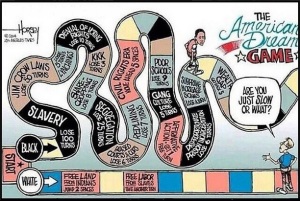
(click to enlarge)
I’ve also noticed that most whites, when brought up the subject of racism, they automatically assume that to do so means our lives are screwed up & that we believe it’s entirely the fault of white people. I’m sure there are a few blacks that feel that way, but the rest of us know that’s not reality. Successful Africans in America still face discrimination too, so it’s ignorant to believe that it is only disadvantaged blacks who believe that racism is still a serious issue.
Many of the common problems that plague black communities do have origins in the systematic racism that blankets blacks entire history since the days of slavery, all the way up to present day. It was whites who created the environment for the “race card” to even exist by not treating everyone equally from the beginning. They made the race card & dealt it to us; When we are suspicious of racism in certain situations, it’s not “pulling the race card”, it’s genuine diffidence based on history & personal experiences. These past & ongoing experiences have proven to us that in many instances, we are correct in our beliefs that we are being discriminated against. Ironically, many racists will reject the possibility of discrimination if they believe the victims of it were deserving of mistreatment & will pull the race card themselves if they believe that a black person has advanced due to their race alone, not because they actually deserve it:
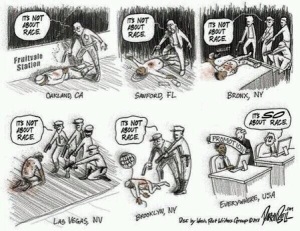
(click to enlarge)
And yes, it is a fact that some corrupt African Moors sold their own people into slavery, but that in no way shape or form explains or excuses Europeans barbaric participation. Some whites honestly believe that this fact lessens or eliminates the responsibility of their past involvement. Well, it doesn’t – not even slightly. Also, what many who bring this up almost always fail to mention, is that in a majorityf of those instances, African leaders were manipulated with alcohol, supplied by Europeans, in order to obtain slaves. Another tactic they used was supplying tribes with weapons to attack neighboring tribes with & they’d then buy prisoners of war.
Africans did utilize slavery, however they weren’t known for treating their slaves with brutality like Europeans were. Mansa Musa – the richest man who ever lived, an African – owned thousands of slaves who were not mistreated, wore silks & gold, drank beer.. Oppressed still, but a much higher quality of life than the slaves of America. And again, Africans in America, nor are Africans in Africa, benefiting from slavery or systematic racism that was & is being practiced in the USA like whites still are to this day.
There have been studies that show trauma can be inherited & that fear can be passed down through generations via DNA. Behavior can be affected by events in previous generations which have been passed on through a form of genetic memory, animal studies suggest. So although none of the more recent generations of Africans in America have ever been slaves or faced the horrors their ancestors did, it doesn’t mean they aren’t able to internalize the emotions linked to those circumstances. This could also explain some blacks natural aversions to whites. There’s also this thing called being human, which means you have the ability to feel passionately about things even if they didn’t happen to you.
Q: What about stuff like BET, Miss Black America & HBCU’s? If you want to be treated like everyone, why do you separate yourselves? You’re all the real racists!
A: All of those were implemented due to being regularly excluded, not to create an even wider racial divide. Where we were not invited or welcome, we had to create our own versions. You’d think that would be pretty easy to figure out. Things like that still exist today because we are still not included in many ways. At pretty much any major grocery chain or drugstore’s registers, you will rarely ever see people of color gracing the covers of the magazines. Shows like Friends & Seinfeld had virtually no black characters, not even the extras used in the backgrounds. The acceptance rates for minorities at most non-HBCU colleges & universities in America remain very low. Virtually all popular superhero’s are white. Every Barbie commercial mainly features their white dolls, only showing their dolls of other races during the last few seconds & usually positioned in the background, behind the white one who is front & center. It took Disney 72 years to create a black princess & then chose one who kissed a frog – even portraying her as one for the bulk of the film – when in the original fable, the princess never turned into a frog. So even our children are being exposed to white supremacy, showing what the people in this country look like who are valued most, from their early years.
Q: What about “Black-on-Black crime“? You only care when non-black people kill blacks, but not when you kill each other? That’s racist! You need to take care of that problem before you start criticizing others for doing the same!
A: 84% of violent crimes committed against whites are done so by other whites, yet they never bring up their “white-on-white crime” problem. Most violent crimes happen within racial lines, not across them. Aside from that, it’s completely ridiculous to believe that blacks do not care when they lose a loved one by the hands of another black person. The difference is, when blacks kill other blacks, we know that it’s not racially motivated. Most crimes amongst blacks in low-income areas is economically based which stems from capitalism & many generations of systematic racism as well. When people are starving & lacking opportunities, they sometimes resort to desperate measures.
Of course race isn’t a factor in every instance where blacks are harmed or killed by white police, but history has shown us that when it is, the chances that race is a factor are more likely than not. It’s also completely ridiculous to use the theorized black-on-black crime epidemic to downplay the fact that minorities are targeted much more by law enforcement than whites, or as an excuse to make it seem like it should be okay for everybody else to kill blacks too. That’s sick…
Q: If you don’t like it here, why don’t you leave (go back to Africa)?
A: This is probably the most disrespectful & extremely racist question of all. Africans were brought to this country against their will, stripped of their history, identity, languages & cultures, forced to build this country up without compensation for hundreds of years, all the while being treated like shit (separated, murdered, lynched, burned alive, castrated, all this often times in front of other family members, etc) with very little to no appreciation or remorse expressed in the aftermath, on top of further mistreatment. We’re the ones who have been continuously & very deeply wronged, but it is us that should go??
It would make a whole lot more sense to tell racists to stop treating us as lesser, or suggest that they leave instead, but the mind of a bigot is anything but logical. Don’t they realize that to believe such a thing is the equivalent to thinking that if women want to lower their risk of being sexually harassed or raped, they should never leave home, wear skirts, or avoid being in the presence of men? Or that a youth who is being bullied should the be one to switch schools, or be home-schooled, or ignore the abuse, grow a pair & “get over it”? Perhaps they do & that’s why they make such heartless statements…
All that most Africans in America really want is to be treated according to their character, not their skin colors. They want safe places to raise their children; an environment where they don’t have to teach them how to protect themselves from the very people who are meant to protect them. Is that really so much to ask??
— What makes part of all this the burden of the white man is that although I’m sure many of them are grateful for their privilege, many are in denial that it even exists, nor would they want to let it go by helping to fight for the discriminated to gain equality. It’s not a goal that can be reached without the help of the whites who are perpetuating this privilege & comfortably allowing it to go on, like they did in the past with slavery & the following decades of injustices.
It is a difficult task, it’s uncomfortable & I’m sure many would lose a great deal of friends & family over joining in on the movement. For many whites, it would not be worth it, because it doesn’t negatively impact their lives & they are not willing to disrupt their own for the greater good. Aside from those types, there are many whites who are indeed allies of minorities & sympathize with their struggles, who may still be greeted with distrust & prejudices from minorities. Not saying that it’s right, but it should be understandable & forgivable. With history & personal experiences usually being the cause of such prejudices, it’s not baseless or irrational like pure racism is.
Racism isn’t only pure hatred; It can also be fear, apathy & silence. I am in hopes that this read gives Americas racists a different perspective & possibly help lessen or eliminate their mental illness that is racism & join the movement towards equality, so that America & the rest of the World can be a better place for all of us & future generations…
Posted in
Uncategorized and tagged
Abraham Lincoln,
Affirmative Action,
Africa,
african american culture,
African Americans,
African history,
African-American,
aiyana stanley,
Akai Gurley,
Al Sharpton,
Albert Einstein,
Alkebulan,
always remember,
amadou diallo,
American history,
ancient Australia,
armand bennett,
atlantic slave trade,
Australian aboriginals,
Australian colonization,
Australian genocide,
Australian history,
Black history,
black lives matter,
black on black crime,
black on black violence,
black out cyber monday,
Black Panther Party,
blackout black friday,
boycott black friday,
boycott cyber monday,
chris rock white people,
civil liberties,
civil rights,
civil rights movement,
current events,
DeAndre Joshua,
diaspora,
Dontre Hamilton,
Eleanor Bumpurs,
equal rights,
Eric Garner,
evolution,
Exodus movie boycott,
Ezell Ford,
Ferguson,
ferguson looters rioters,
Ferguson protests,
ferguson riots,
genocide,
HBCU,
Islan Nettles,
Jeanine Pirro,
Jesse Jackson,
John Crawford,
jonathan ferrell,
Jordan Davis,
jorge azucena,
Judge Jeanine,
Kajieme Powell,
kaldrick donald,
Kendra James,
Kendrick Johnson,
Kimani Gray,
KKK,
knockout game,
kyam livingstong,
Lennon Lacy,
lynching,
Malcolm X,
marlene pinnock,
martin luther king jr,
Michael Brown,
Michelle Cusseaux,
Mike Brown,
mike moore,
Milton Hall,
Miriam Carey,
mitrice richardson,
Montgomery Bus Boycott,
native american history,
Obama,
Oscar Grant,
peaceful protest,
police brutality,
post racial society,
post-racial America,
race card,
racial equality,
racism,
racist,
Rekia Boyd,
Renisha McBride,
Reparations,
reverse racism,
rumain brisbon,
Sean Bell,
Shantel Davis,
Shelly Frey,
slavery,
st louis police deparment NFL Rams,
st louis rams,
St. Louis police demand apology,
St. Louis Police Officers Association,
systematic racism,
tamir rice,
tanesha anderson,
Trayvon Martin,
Tyisha Miller,
white mans burden,
white on white crime,
white on white violence,
white pride,
white privilege,
white supremacist,
white supremacy,
Yvette Smith
